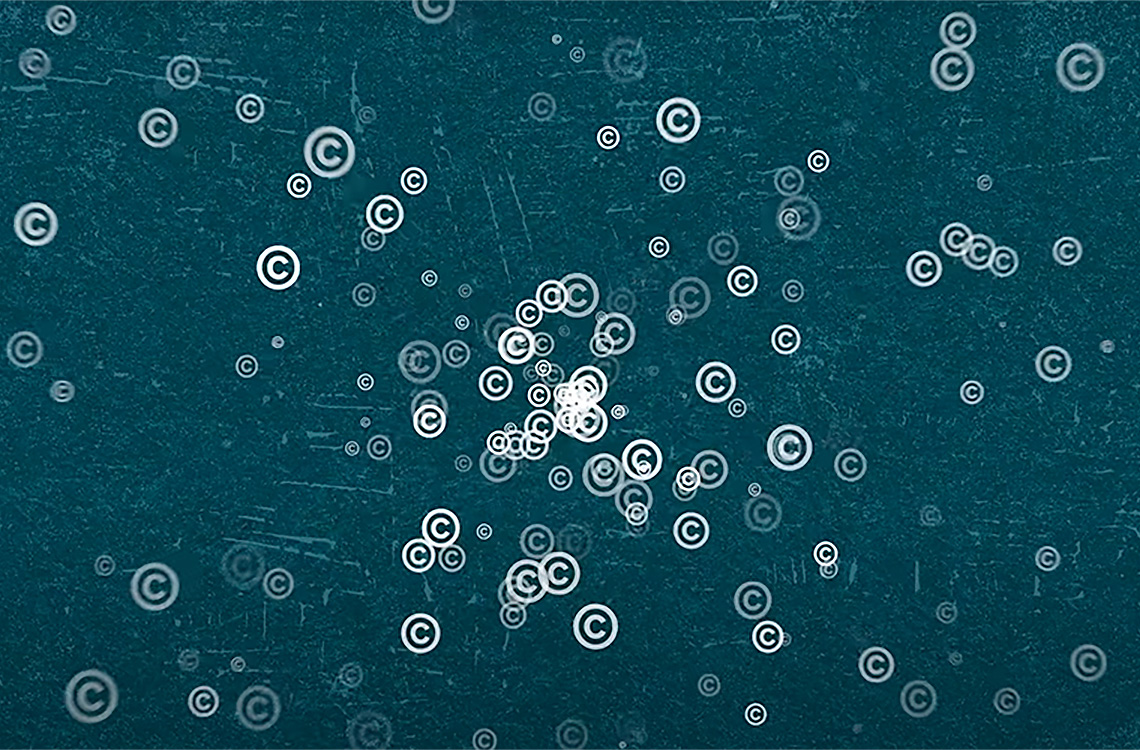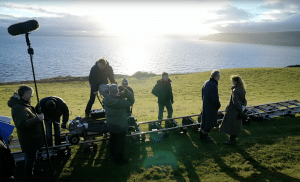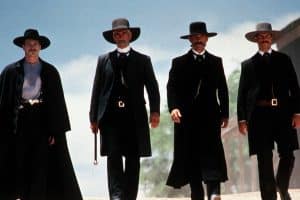Every content creator has heard of copyright at some point or another, but what is it actually, and how does it affect you?
Copyright, royalties, author’s rights, and usage licenses are legal terms that we’ve all heard. It’s safe to say that we all have a minimum grasp of the concept behind “copyright” — that an author’s work is legally protected, that torrenting pirated movies can get us in trouble, and that platforms like YouTube are known to take down content on “copyright grounds.” But the exact definition can be something like an unwanted ghost, hanging around and ruining your good time from corners unseen.
In this guide, we’ll help you better understand the concepts and principals involved with copyright — and how they affect media consumers, creators, and producers. Please note that this is a very simplified explanation of legal concepts to guide you in your own research for your specific needs. We aren’t lawyers, this isn’t exhaustive, and we can’t offer legal advice.
The most formal definition of copyright directly from the U.S. Copyright Office goes something like this:
Copyright is a type of intellectual property that protects original works of authorship as soon as an author fixes the work in a tangible form of expression.
These “expressions” include artwork, photography, music and sound recordings, software, literary works, content published on the internet, films, architecture, theatrical productions, and many others. In a nutshell, the creator of any of the aforementioned media and artistic expressions holds a copyright over their work, meaning that they are free to exploit it as necessary as the sole proprietors. No other person or entity may be able to fully or partially copy, reproduce, distribute, or monetize this content without the copyright holder’s permission.
Copyright law is complicated (and it varies internationally) — it’s worthy of an entire university seminar. With some variations from country to country, it’s currently accepted that a work’s copyright is legally valid for the lifetime of the author plus a determined period of years after the author’s death.
To put this in practical terms, if you’re currently making a movie, you can’t use your favourite rap track from a famous artist without either A) paying for the rights to use that specific song (which can go for tens of thousands of dollars), or B) getting in legal trouble for using it without the necessary licencing. On the other hand, you can use a song like “Pomp and Circumstance” by Edward Elgar (that classic graduation song) without asking for any permission. This is because its copyright has expired, and it has become part of the public domain.
While most countries are signatories of international copyright treaties, each one may have their own specific laws regarding media reproduction, ownership, and regulation. Other countries may enforce it selectively, and a few others may even be lax about it. We encourage you to explore the intellectual property laws and regulations specific to your media use case after you read this article.
We’ve already introduced a few key terms involved with intellectual property — let’s put those in context with examples of how they may affect you personally when you’re consuming, creating, and producing media.
First, let’s cover content consumers. When you purchase a piece of media (for example a book), you are not only paying for the physical book. The original author, if still the copyright holder, is receiving royalties via the publisher who is distributing their book. As a purchaser you can lend the book to a friend, but you can’t photocopy the book and sell copies for your own profit. This is called copyright infringement, and if you get caught, you can end up in a lot of trouble. Similarly, you can’t reproduce sections of the book and pass them off as your own because this is considered plagiarism.
Now let’s move on to content creators. As the copyright holder of a piece of work, you want to make sure that your work is respected, as guaranteed by the law. If you’re a photographer, and you see that a brand has been using your pictures for their publicity without your permission, you are entitled to file a copyright complaint. The internet has made it natural to share our content online, and this exposes it to being downloaded and used without permission.
Due to this problem, it’s common practice to add a signature or watermark to your work. Online platforms also allow copyright holders to protect their work from infringement. For example, YouTube allows you to claim ownership of content that you upload to the platform, and if you see other users featuring your content without permission, you can file a complaint with YouTube. If the other user is found guilty of infringement, they may be asked to trim the infringing sections of their video or take it down entirely.
Finally, let’s focus on content producers. With the same YouTube example, as a creator, you either need to own the footage or audio, or you need the appropriate permissions or rights to use it. This is where the concept of royalty free content comes in. These are media items licensed by stock agencies, which for a fee, grant you the rights to use specific media in your personal and professional projects.
For example, you can use royalty free music for a documentary after you’ve acquired a license and know that you’re in the clear. Please note that royalty free does not equal copyright free. With a royalty-free license, you pay a fee for the right to use the media without paying perpetual royalties, but you still don’t own the media in question.
If you need content for your projects, you could also take advantage of other usage licenses, like Creative Commons or an Attribution license. These are specific types of usage license that allow producers to share their work for free, or in the case of an attribution license, you simply need to give credit to the original author. Using Creative Commons video is a great alternative if you have limited budgets and want to support an organization that seeks to democratize content.
We hope that you now feel more knowledgeable about copyright – the point here is to understand the basic concepts meant to protect you as a content consumer, creator, and producer. We can’t stress enough that there are many nuances, limitations, and exceptions to these basic concepts. As we said, “intellectual property” is an entire field unto itself. However, with this quick summary in hand, now you know what to research next!
Cover image via the United States Copyright Office.
Looking for assets you know you can use without landing in trouble? We’ve got you covered.



